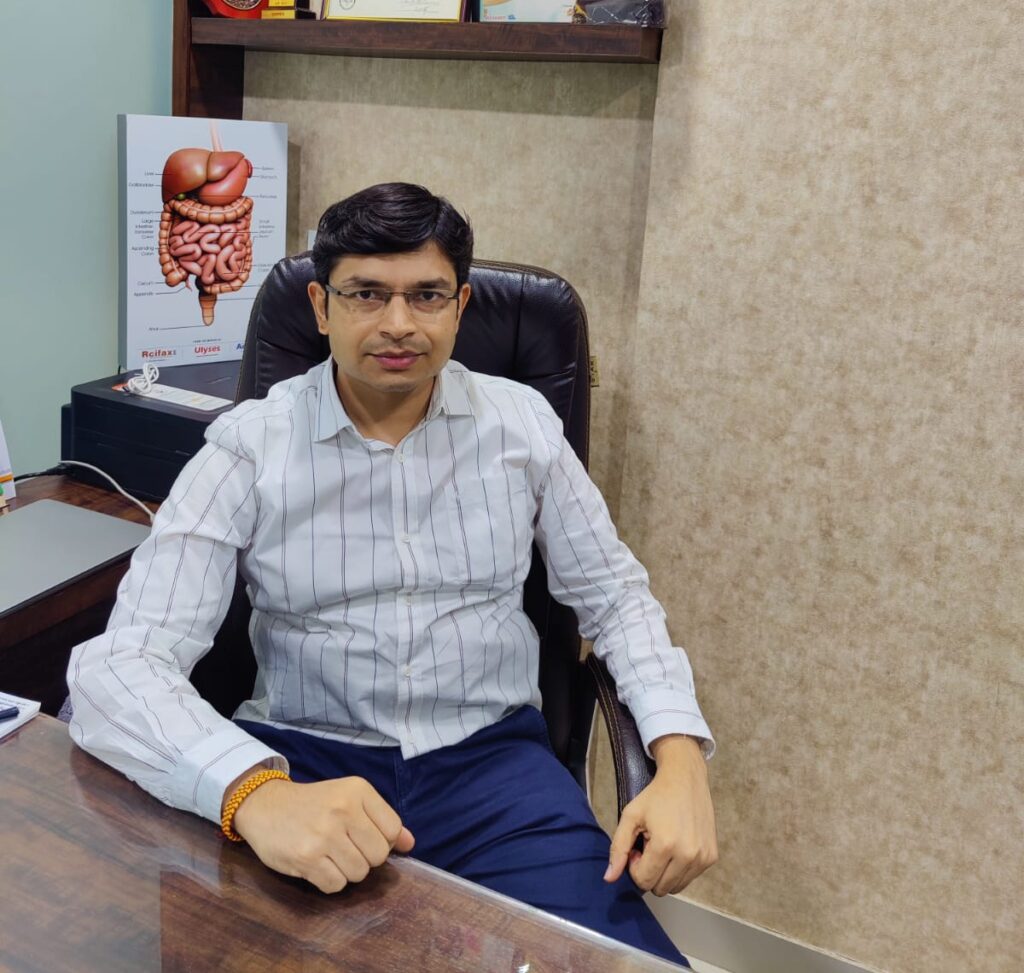ERCP in Raipur - Endoscopic Retrograde Cholangiopancreatography
Dr. Abhishek Jain, a specialist in ERCP (Endoscopic Retrograde Cholangiopancreatography), expertly diagnoses and treats conditions of the bile ducts and pancreatic ducts with unmatched precision and care.
What is ERCP?
ERCP combines endoscopy and fluoroscopy (a specialized X-ray) to evaluate and treat conditions of the bile ducts, pancreatic ducts, and gallbladder. It is particularly useful for identifying blockages, stones, or tumors in these areas.
How is ERCP Performed?
- The procedure is performed under sedation or general anesthesia to ensure comfort.
- A flexible tube with a camera (endoscope) is gently inserted through the mouth and guided to the small intestine.
- Contrast dye is injected into the bile or pancreatic ducts, and X-rays are taken to identify any abnormalities.
- If necessary, treatments such as stone removal, stent placement, or biopsies can be performed during the procedure.
Indications for ERCP
ERCP is recommended for patients with:
- Jaundice caused by bile duct blockages.
- Gallstones or bile duct stones.
- Suspected tumors in the bile or pancreatic ducts.
- Chronic pancreatitis or pancreatic duct strictures.
- Bile leaks following gallbladder surgery.
Benefits of ERCP
Comprehensive Diagnosis
Provides detailed imaging of the bile and pancreatic ducts.
Therapeutic Options
Allows immediate treatment, such as stone removal or stent placement.
Minimally Invasive
Avoids the need for major surgery in many cases.
Rapid Symptom Relief
Resolves blockages or leaks, alleviating pain and discomfort.
FAQs
Also Check Other Services at Jai Gastro & Liver Clinic
Find Relief for Your Gut Health in Raipur
From heartburn to complex digestive issues, Dr.Abhishek Jain, the best Gastro doctor in Raipur offers personalized care for lasting wellness.

